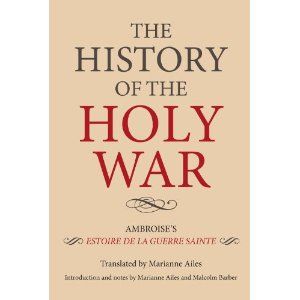The Estoire de la Guerre Sainte, an early example of vernacular chronicle, by the Norman poet Ambroise, presents an eye-witness account of the Third Crusade (1188-92) in a highly-polished rhetorical style. Central is the character of Richard the Lion Heart, Ambroise's hero, but the narrative is also enlivened by short anecdotes, sometimes heroic and sometimes more down-to-earth, about other participants. It depicts clearly the privations and sufferings of the ordinary crusaders, whether at the siege of Acre or on the march, and provides both a detailed record of events and a personal perspective on the Islamic warriors and their leaders, in particular Saladin and Saphadin. Ambroise also shows remarkable knowledge of contemporary weapons of war, such as siege engines and types of ship. This, the first new edition of the Estoire since 1897, offers text and prose translation into English. Detailed notes identify most of the participants and clarify literary, biblical and historical allusions, while the introduction looks at historical, literary and philological aspects of the poem and assesses its significance as literary artefact and historical record, setting it in context and bringing forward new evidence about the identity of the poet. Dr MARIANNE AILES is Lecturer at Wadham College, University of Oxford, and Honorary Research Fellow at Reading University; MALCOLM BARBER is Professor of History at Reading University.
